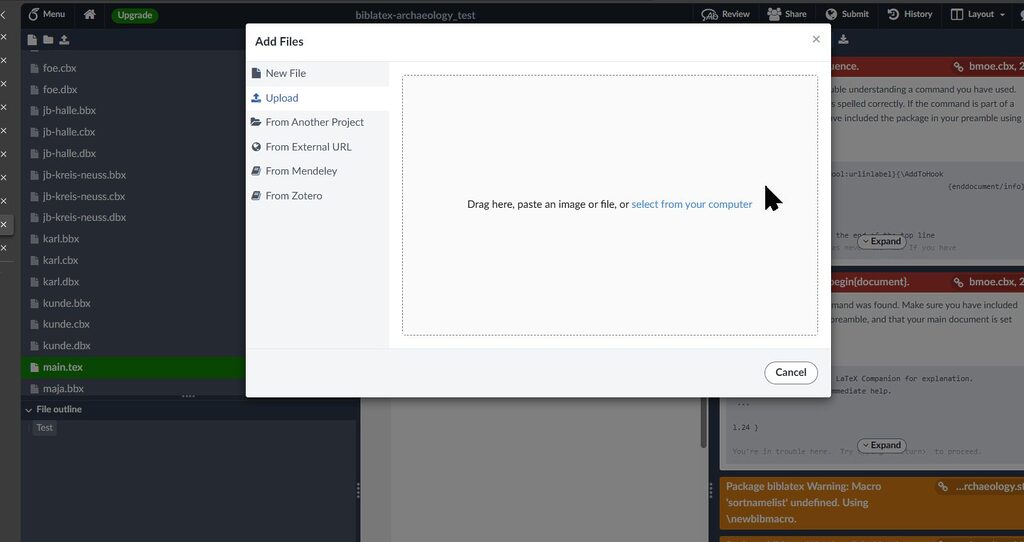
Overleaf is a collaborative online LaTeΧ editor. The advantage of this approach is that authors are independent from alternating devices where they need always the same TeΧ distribution in the same state. The disadvantage is that such web-based services have high demands concerning stability and therefore delay updates until extended testing was carried out. At the time being Overleaf is one year delayed and maintains TeΧ Live 2022.
If you want to use a newer biblatex-archaeology release there is a simple method. Upload all its files into the root folder of your document. Unfortunately a subfolder won’t work. As LaTeΧ first looks in the document folder for files before accessing them via the files’ database, it will superseed the distribution files by the local ones. The issue here is that this will only work if all of biblatex-archaeology‘s dependencies are new enough. At the time of writing, biblatex-archaeology version 2.3 will not work in Overleaf because it needs definitions for the new LaTeΧ 3 hooks. Biber may be a problem since every biblatex release is accompanied by its own Biber version.
